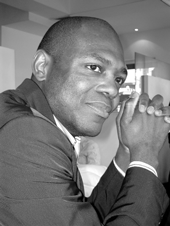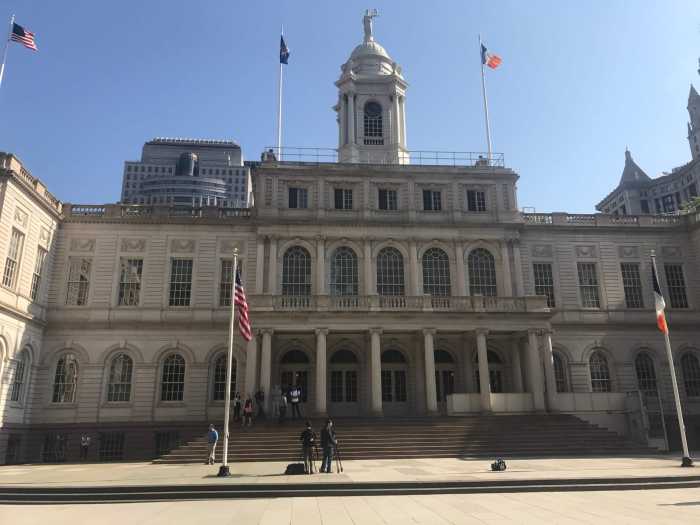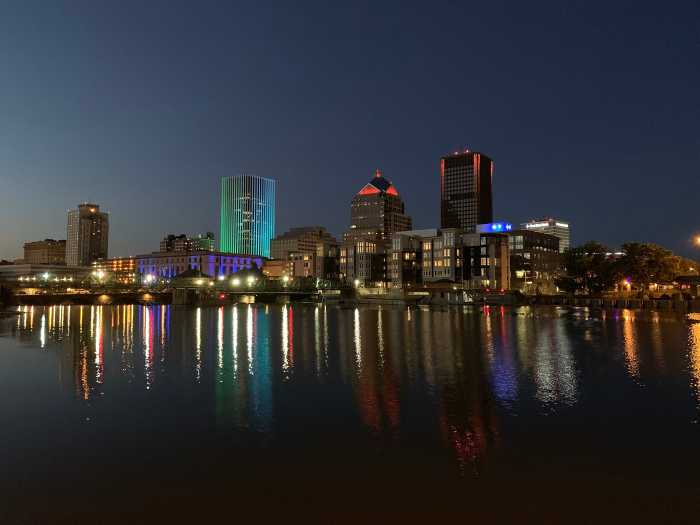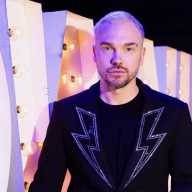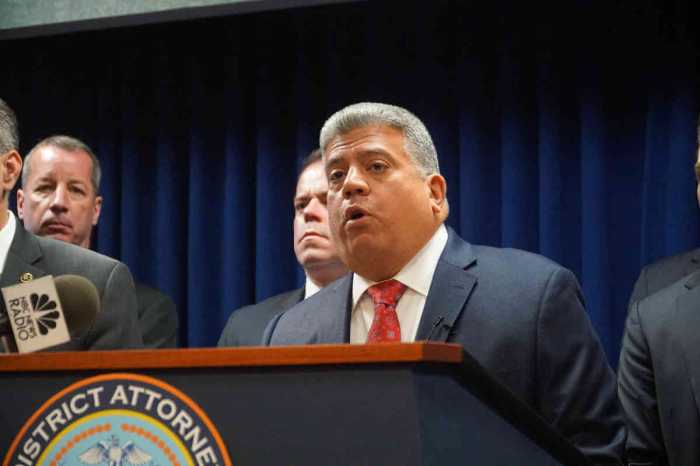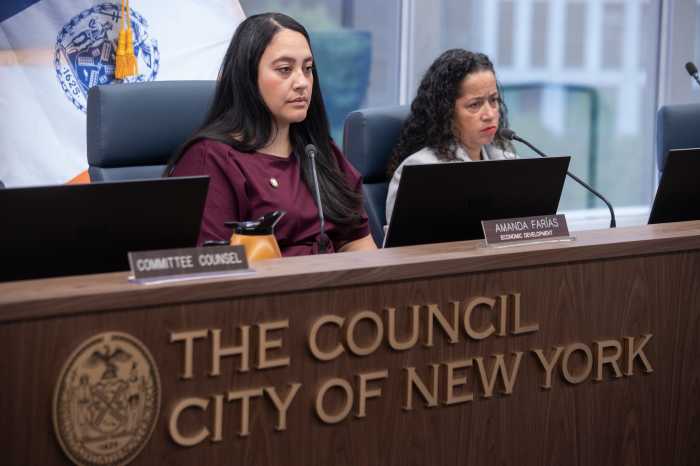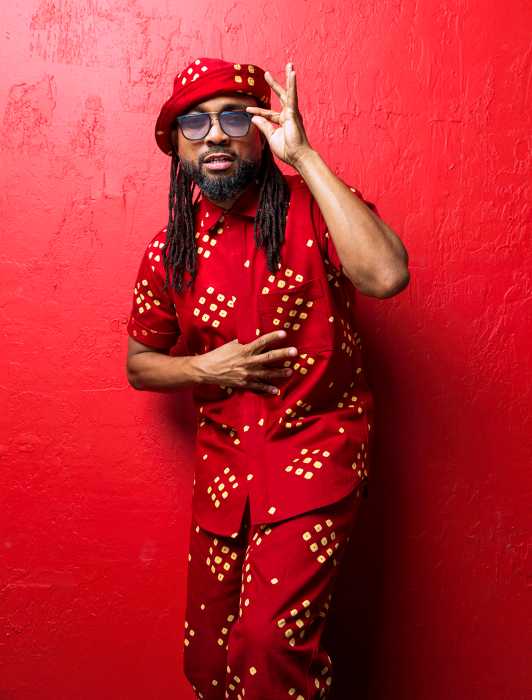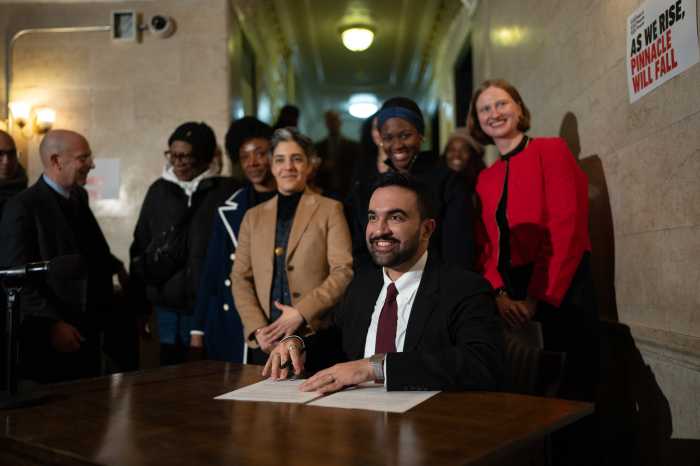Joseph Tolton looks to engage African Americans on “last struggle”
In a lecture sponsored by LGBT Student Services at New York University on February 9, Pentecostal Elder Joseph W. Tolton offered his leadership in a spiritual drive to win full gay civil right equality in what he described as the ”last struggle.” Paying tribute in his opening remarks to Dr. Martin Luther King Jr. and in his closing remarks to Coretta Scott King, who died at the end of January, he called upon his audience to “join my army.”
“I am the prophet,” the gay religious leader said, urging “aspiring activists in the room” to listen. In this spiritual struggle, he said, “We are destined to win.”
Sitting down a few days later for a more reflective conversation with the Gay City News, the 38-year-old pastor became philosophical about the nature of gay civil rights. Tolton again emphasized the necessity of a faith-based strategy toward the struggle, reiterating the innate righteousness, or what he termed “the divine design,” of gay love.
“We are a faith-based nation. Religion is the political base of our culture, that is now dominating American life,” he said.
Tolton’s take on why the gay marriage issue so far has encountered so much opposition relates in part to what he said is the disconnect between the African-American community and white leadership in the gay community. Not having invited African Americans “to the table” in the first place, he argued, the quest for gay marriage instead became divisive and polarizing.
“Activists in the black gay community should have been brought in to build the gay marriage issue, so that we could have articulated the issue and its connection with the civil rights fundament,” Tolton said, “because marriage is not a Chelsea topic, but should lift the whole community.”
Tolton also pointed to a larger crisis of the American left, saying, “It got distracted by Viet Nam and focused on women’s rights.” His own remedy of spiritual energy for a revitalized left mirrors that of scholars such as queer Philadelphia arts professor Camille Paglia, who has called it a historical mistake of the left to leave spirituality and religion out of its political vocabulary. Tolton mentioned some positive steps in a new direction, including religious coalition efforts by gay political organizations such as the Empire State Pride Agenda and the New York State Black Gay Network. Working with these organizations as director of the REVIVAL Initiative, a spiritual forum endorsed by Gay Men of African Descent, Tolton has created a public platform as a civil rights advocate for gay and lesbian people living in what he called “the African Diaspora.”
Tolton did not shrink from broaching more controversial topics in his NYU speech, such as the role of racism in dividing both the black and the gay communities. As “the legacy of the racism was never repented by the white Christian Church,” he said, the civil rights movement of the 1960s gave birth to the black power movement, and thereby became “very masculine,” delivering a “prowess-based role model for the black man… that sought out any weakness.”
Tolton, who grew up in the Pentecostal Church in Harlem, explained that as a young man coming to terms with being gay, “homophobia broke my heart.” He noted black homophobia’s deep-seated roots in the community’s collective psyche, as “black gay openness questions the black community and makes them have to deal with their own crisis and trauma.” “The rape of black women and men during slavery,” Tolton said, is an underlying factor that has left the black community uncomfortable with the topic of sexuality.
In this climate, he said, extreme conservatives in the black community, such as Ohio Secretary of State and Ken Blackwell, a candidate for governor there, aim to capitalize on divisions within the black community over gay civil rights.
“He went bananas on traditional values issues,” Tolton said of Blackwell. He noted that Blackwell’s fiercely anti-gay stance helped George W. Bush increase his black vote from 9 percent in 2000 to 15 percent in his 2004 re-election.
Tolton also offered some criticism of the black gay community. When asked to comment on the recent emphasis among many in communities of color on finding more culturally-sensitive ways to describe men who might otherwise be termed gay or bisexual—such as men who have sex with men (MSM) and same-gender love (SGL)—he expressed adamant opposition to this slippery slope of identities.
“It’s a cop-out and especially the MSM term bothers me, as it is born out of the DL secrecy,” Tolton said, referring to the practice of referring to men in the African-American community who live straight lives while having gay sex as being on the down-low. He acknowledged that remaining ambiguous about one’s sexuality is sometimes necessary in an openly hostile environment, but added that people must “acknowledge the truth about their identity or fluidity. It’s not about labeling, it’s about living in honesty.”
The labeling issue pinpoints Tolton’s twofold objective of healing divisions within the black community and uniting the black and white forces of the gay community.
Having founded his own gay-friendly Pentecostal congregation, the Rehoboth Temple Christ Conscious Church, which currently meets for weekly or fortnightly services at Columbia University on Broadway pending its formal inauguration in May, Tolton looks forward to a permanent home for the congregation in central Harlem.
“My strategy is to create a spiritual forum to trumpet the benefits of divine design and the gospel of radical inclusion,” Tolton explained.
gaycitynews.com

